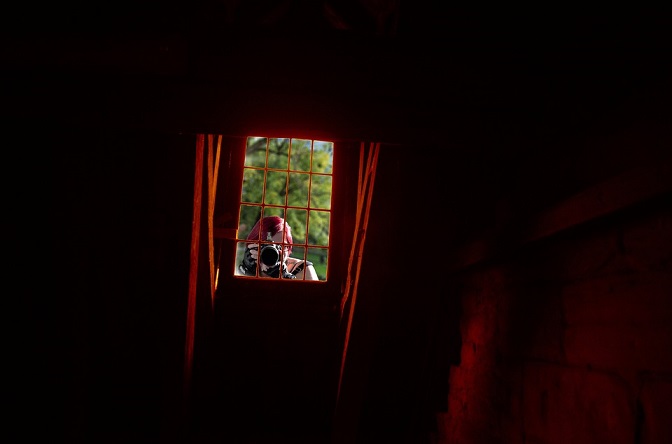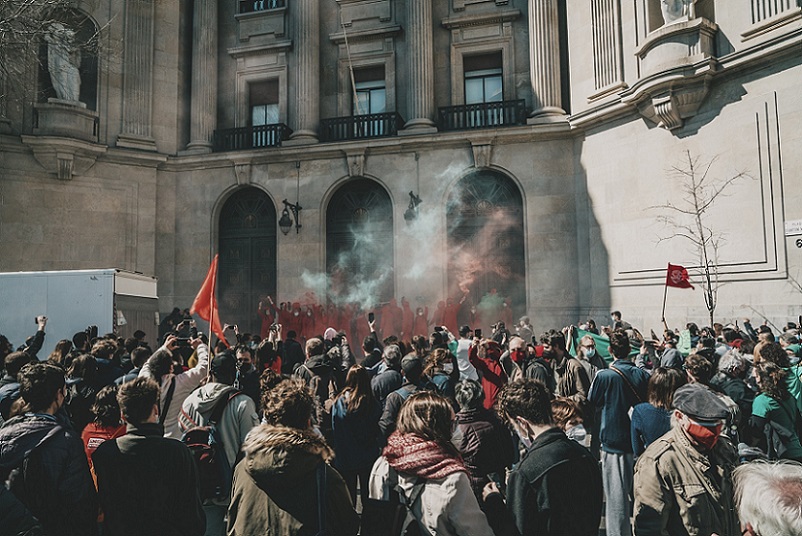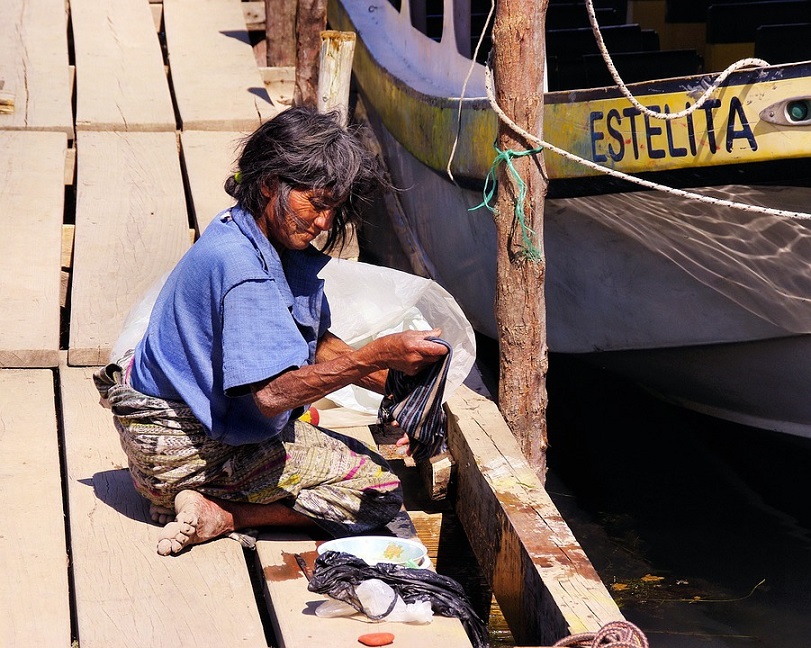The indignation of the communities and indigenous peoples participating in the October Days 2023 in Guatemala has increased. They say that the government knows this and is therefore trying to weaken the mobilisations and gain time. The aim: to sabotage the inauguration of the elected president, Bernardo Arévalo.
 Zeus Naya
Zeus Naya
The protests that have been taking place since 2 October against the actions of the Public Prosecutor’s Office (MP) are part of a long process of social struggles, provoked by the historical contradictions of the dominant socio-economic structure, which has been unwilling and unable to resolve the serious problems it generates.
This is the opinion of the renowned historian and social anthropologist Mauricio José Chaulón, who believes that the class struggle in Guatemala is intensifying.
“In the most recent history of the nation, which we can record since the signing of the Peace Accords (29 December 1996), these protests are unprecedented,” he says, because they have “managed to integrate different sectors that, redundantly, have historically been separated due to the very consequences of power.
With the leadership of organised indigenous peoples, “the protests rebuild the social fabric of the great majorities from a working class sense and in several places from an ethnic sense”.
 He explains that collective awareness-raising goes beyond demands for respect for the electoral process to include criticism of serious social and economic problems. Among them are racism, patriarchy, malnutrition, hunger, inequalities, abuse of power, illiteracy, material and immaterial precariousness of education, lack of access to health, migratory conditions, violence, lack of housing and unemployment, among others.
He explains that collective awareness-raising goes beyond demands for respect for the electoral process to include criticism of serious social and economic problems. Among them are racism, patriarchy, malnutrition, hunger, inequalities, abuse of power, illiteracy, material and immaterial precariousness of education, lack of access to health, migratory conditions, violence, lack of housing and unemployment, among others.
“Social sectors that traditionally did not get involved in these protests are now demonstrating through a sense of community: neighbourhoods, colonies, villages, municipalities, territories, towns,” he explains.
“This is – he says – one of the most important characteristics of these days of protest in October 2023 in the country, which make them historic in comparison with others”. He specifies that although they are all part of the same process, the involvement of the urban middle classes in dialogue and sharing of slogans, awareness and praxis with the indigenous peoples and popular sectors is transcendental.
 Sabotaging the presidential inauguration
Sabotaging the presidential inauguration
According to Chaulón, the power groups are trying to do everything they can to prevent the elected president, Bernardo Arévalo, from taking office on 14 January 2024.
“Their primary interest is to invalidate the electoral process, arguing that there was fraud, which is totally false,” he reflected. But they did not count on the popular protests and that has stopped them; however, they are now resorting to legal mechanisms to bring them down, he says.In this sense, the social anthropologist warned, “possibly the MP will try to publish the supposed results of the investigation into the Movimiento Semilla (Seed Movement) party, which is full of falsehoods, in order to invalidate the elections”.
According to the Guatemalan analyst, it is a coup d’état through manipulation of the law or lawfare (legal warfare), but “the intensity of the demonstrations prevents this, which is why the authorities resort to the Constitutional Court (CC) to remove the blockades.
 The aim is to expel the people located outside the MP’s headquarters and make the demonstrations turn into protests only, without causing any pressure on the ruling system, he described.
The aim is to expel the people located outside the MP’s headquarters and make the demonstrations turn into protests only, without causing any pressure on the ruling system, he described.
The CC issued a resolution on Wednesday 18 October authorising the use of force to evict protesters from the MP’s headquarters, and the nation was placed on a state of alert. PL
(Translated by Cristina Popa – Email: gcpopa83@gmail.com) – Photos: Pixabay












.jpg)












